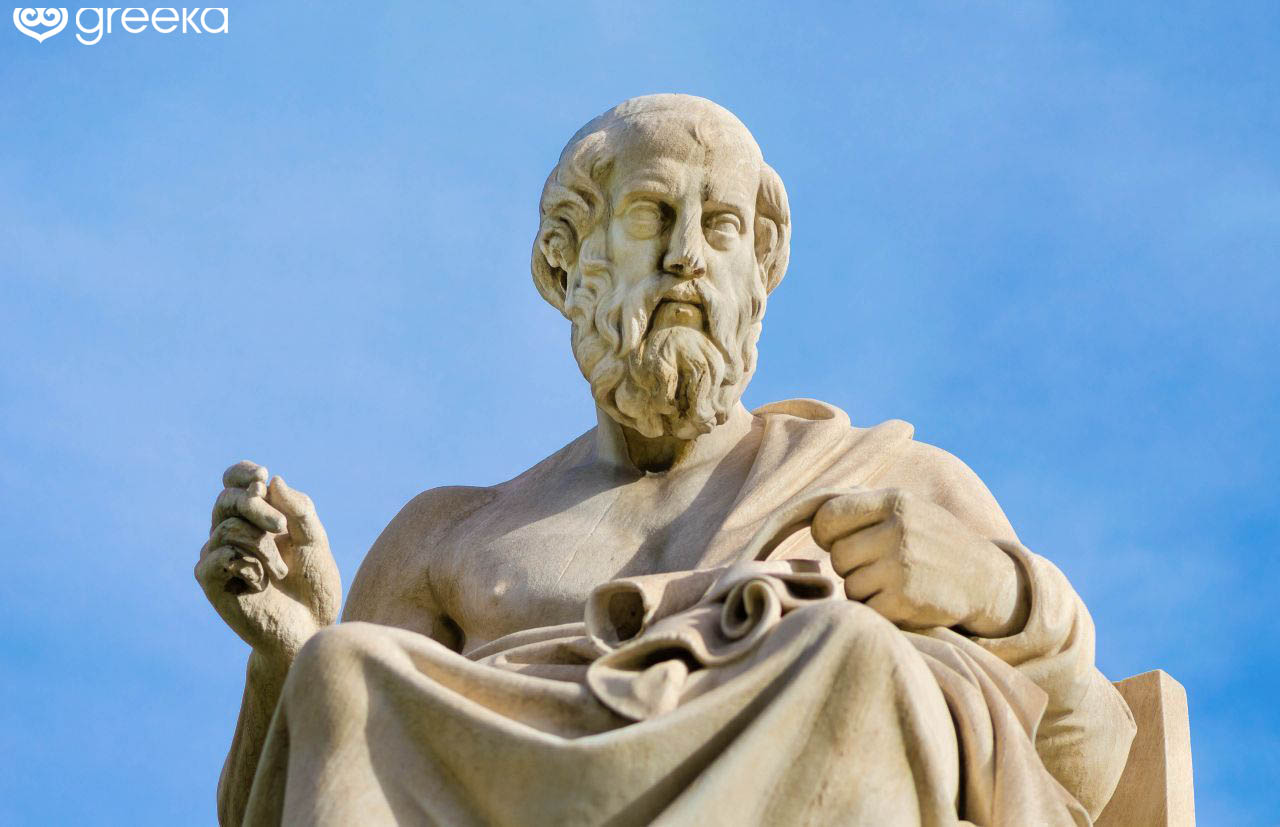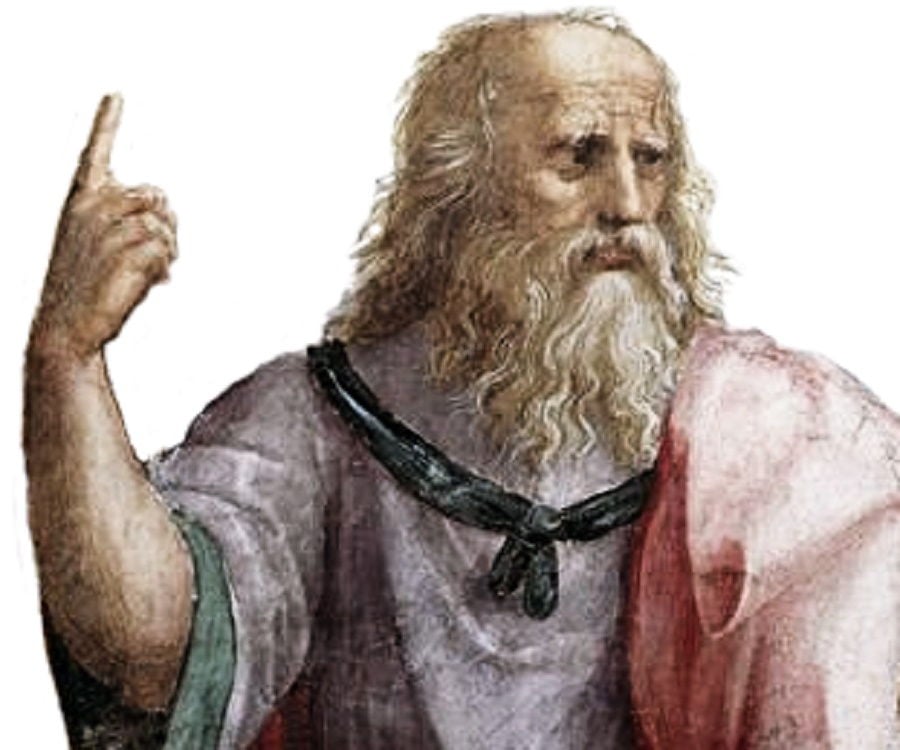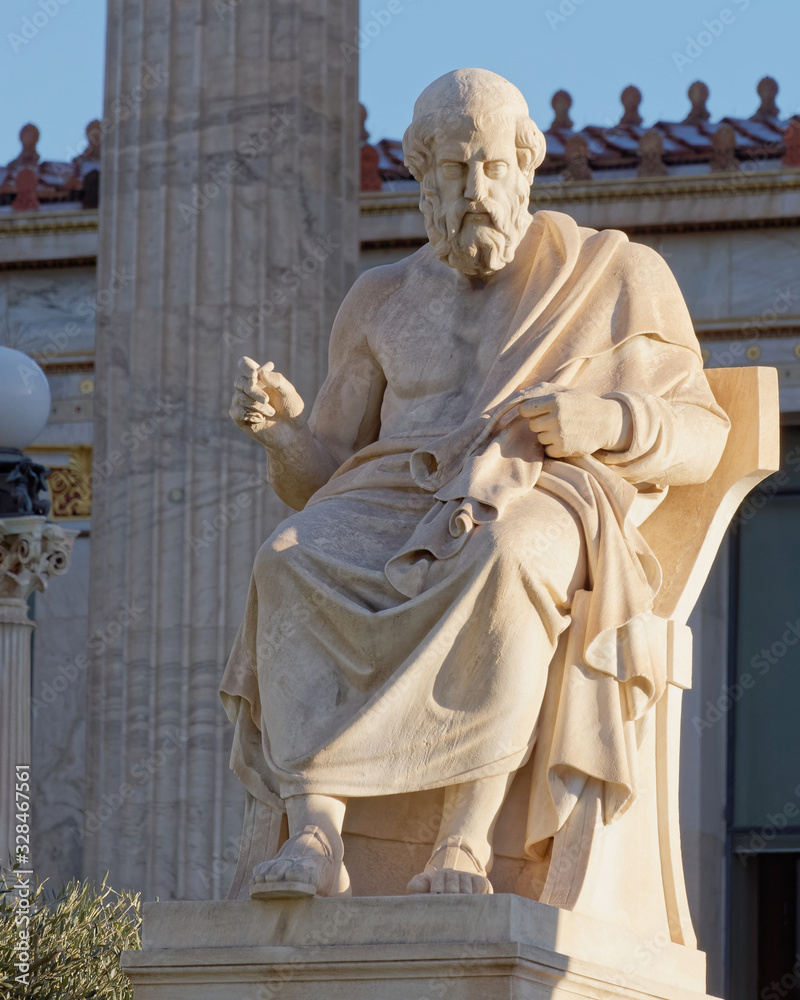Plato's Enduring Legacy - Achievements And Impact
It's truly something to consider how certain individuals from history continue to shape our thoughts and ideas, even thousands of years after they lived. When we talk about the thinkers who laid down the very foundations of what we call Western thought, a few names really stand out, you know, like very prominently. Among these towering figures, someone who pretty much sits at the center of it all is Plato, a name that just about everyone who has ever looked into philosophy will recognize, and for good reason, too it's almost a given.
He wasn't just a lone thinker; he was, in some respects, part of a remarkable intellectual lineage, learning directly from Socrates and later teaching Aristotle. This connection, you see, ties him deeply into the very early days of Western intellectual pursuits. His contributions, like, honestly, they've stuck around for a very long time, influencing so many different areas of human thought and inquiry, which is quite a feat, if you think about it.
What makes his story even more compelling, perhaps, is that his actual writings, his complete collection of thoughts and ideas, have apparently survived for over two thousand four hundred years. That's a truly incredible stretch of time for any written work to last, isn't that something? This survival means that we can still read his words directly, getting a sense of his mind and his ideas, which is, in a way, pretty special for anyone interested in these historical achievements.
- Erome De Sophie Rain A Deep Dive Into Her Life And Career
- Eduardo Camavinga Religion Exploring The Faith Of The Rising Star
- Movierulztc The Ultimate Guide To Streaming Movies Online
- Frank Fritz A Tribute To The American Pickers Star
- Aj Mclean The Heart And Soul Of Backstreet Boys
Table of Contents
- Plato - A Life of Thought
- What Makes Plato's Achievements So Lasting?
- How Did Plato's Academy Shape Future Plato Achievements?
- Exploring the Elements in Plato's Achievements
- Why Are Plato's Dialogues Still Relevant for Plato Achievements?
- What Did Plato Learn from Socrates and How Did It Impact His Plato Achievements?
- Plato's Influence on Our Thinking About Plato Achievements
- Considering Plato's Wider Impact on Plato Achievements
Plato - A Life of Thought
Plato, whose birth happened around 428 or 427 BCE in Athens, Greece, and who passed away there in 348 or 347 BCE, was an ancient Greek thinker of great importance. He was a student of Socrates, a very well-known figure himself, and someone who really helped to define what Western philosophy would become. Born into a family with considerable means in Athens, he had a background that probably gave him access to a good education and exposure to the intellectual discussions of his day, which is, you know, quite helpful for someone who would go on to do what he did.
His connection to Socrates is particularly notable, as Socrates, apparently, did not put his own thoughts down in writing. It was through Plato's works, especially his dialogues, that many of Socrates' ideas were preserved and shared with others. This makes Plato, in a way, a crucial link to the thinking of his own teacher, making sure those ideas didn't just fade away into history, which is actually a big deal for the flow of ideas.
Here's a quick look at some personal details about him:
- What Is Ozzy Osbournes Net Worth An Indepth Analysis
- American Pickers Exploring The World Of Antiques And Collectibles
- How Old Is Frank Fritz From American Pickers A Comprehensive Look Into His Life And Career
- Shopia Rain Erome The Rising Star In The Entertainment Industry
- Understanding The Ages Of Backstreet Boys A Comprehensive Overview
| Birth Name | Unknown (Plato is a nickname, meaning "broad") |
| Born | Around 428/427 BCE, Athens, Greece |
| Died | 348/347 BCE, Athens, Greece |
| Nationality | Ancient Greek |
| Notable Role | Ancient Greek philosopher, student of Socrates, teacher of Aristotle |
| Key Contribution | Founder of the Academy, author of influential philosophical writings (dialogues) |
| Parents | Wealthy Athenian parents |
What Makes Plato's Achievements So Lasting?
When we talk about what makes someone's contributions stick around for centuries, especially in the world of thought, Plato really stands out. His position as a central figure in the long story of Western philosophy, alongside his own teacher Socrates and his own student Aristotle, is, you know, pretty unique. This trio forms a kind of intellectual backbone for so much of what came after them, basically setting the stage for how people would think about knowledge, reality, and living a good life for a very long time.
The fact that all of his writings are thought to have made it through over two thousand four hundred years is, in itself, a pretty amazing thing, isn't it? Most writings from that far back are lost to time, or only fragments remain. But with Plato, we have, more or less, the full collection of his thoughts. This means that scholars and curious people today can directly engage with his ideas, rather than having to piece them together from other sources. This direct access is a huge part of why his achievements continue to be studied and discussed, still influencing people today, which is kind of incredible when you think about it.
His works are not just old books; they are, in a way, living documents that spark new ideas and discussions even now. This long-standing presence in human thought is a testament to the depth and breadth of his original thinking. It's almost as if his mind reached across the centuries, still asking questions and offering perspectives that resonate with our own experiences, even in a world that is so different from his own, so it's quite a thing.
How Did Plato's Academy Shape Future Plato Achievements?
One of the most concrete and lasting of Plato's achievements was the establishment of the Academy. This wasn't just a casual gathering; it was a formal place for learning and discussion, a kind of early university, if you will. The Academy was, basically, a hub for intellectual activity, attracting bright minds from all over. It's where students, like Aristotle, came to learn and to push the boundaries of knowledge, too it's almost like a prototype for all academic institutions that followed.
The Academy provided a structured environment for philosophical inquiry, where ideas could be debated, refined, and passed on to new generations. This institution, founded by Plato, played a huge part in shaping the direction of Western thought for centuries to come. It wasn't just about what Plato himself taught there, but about the very idea of creating a dedicated space for shared intellectual pursuit, which is, in some respects, a very profound achievement in itself, a lasting impact on how we think about learning.
Through the Academy, Plato's influence spread far beyond his direct students. The very concept of organized higher education, where people gather to systematically study and explore complex ideas, can, in a way, trace some of its roots back to this pioneering institution. It helped to ensure that the kind of deep thinking Plato engaged in would continue, inspiring others to seek knowledge and to question the world around them, making it a truly significant part of his lasting achievements.
Exploring the Elements in Plato's Achievements
Plato's mind was, apparently, quite wide-ranging, touching on many different subjects, even things we might consider science today. For instance, he had some interesting ideas about the very basic building blocks of the physical world. He looked at the four elements that ancient thinkers often talked about: fire, air, water, and earth. But he didn't just accept them as they were; he tried to explain what they were made of at a more fundamental level, which is, you know, a pretty curious way of thinking about things.
He put forward the idea that these elements were actually composed of different combinations of triangles. Yes, triangles! He saw these geometric shapes as the fundamental units that, when put together in various ways, created the different properties of fire, air, water, and earth. He even talked about how these combinations formed what he called the "body" of things, meaning their physical structure. This was, in some respects, an early attempt to explain the physical world using mathematical principles, a very ambitious undertaking for his time.
This particular aspect of his thought shows that his achievements weren't limited to abstract philosophical concepts. He also tried to make sense of the natural world, offering explanations for how things work at a very basic level. It's a fascinating example of how his thinking spanned what we now call philosophy and early science, demonstrating his broad intellectual curiosity and his desire to explain the workings of the universe, which is, like, pretty cool.
Why Are Plato's Dialogues Still Relevant for Plato Achievements?
The main way we get to hear Plato's thoughts is through his dialogues. These aren't just dry philosophical treatises; they are, basically, like plays or conversations, where different characters, often including Socrates, discuss big ideas. This format makes his writings much more engaging and, in a way, brings the philosophical process to life for the reader. They are, quite simply, foundational texts for Western philosophy, meaning they are the very bedrock upon which so much later thought was built, which is, you know, pretty important.
These dialogues and the teachings within them have had an unparalleled influence across a huge range of topics. We're talking about everything from metaphysics, which is about the nature of reality itself, to ethics, which deals with how we should live and what is right or wrong, and even political theory, which explores how societies should be organized and governed. His ideas about justice, the ideal state, and the nature of the soul have shaped discussions for thousands of years, still sparking debate and reflection today, so it's really quite something.
The enduring relevance of his dialogues lies in their ability to make readers think for themselves. They don't just present answers; they explore questions, often leaving the reader to ponder the answers. This interactive quality, even in written form, is a key part of why his achievements continue to resonate. They invite us into a conversation that has been going on for centuries, making us participants in the ongoing quest for wisdom, which is, you know, pretty special.
What Did Plato Learn from Socrates and How Did It Impact His Plato Achievements?
Plato's connection to Socrates is, you know, absolutely central to understanding his own intellectual journey and his subsequent achievements. He was a student of Socrates, and this relationship was, in a way, formative for him. Socrates, famously, did not write down his own ideas. Instead, he taught through conversation, by asking questions and engaging people in a process of inquiry that helped them to examine their own beliefs and assumptions. This method, often called the Socratic method, had a profound impact on Plato, too it's almost like a master-apprentice relationship in thought.
Plato, as a very dedicated student, absorbed much of his teacher's approach and many of his ideas. He then took on the task of sharing Socrates' ideas with a wider audience, and he did this primarily through his philosophical dialogues. In these writings, Socrates often appears as a central character, leading the discussions and prompting others to think more deeply. So, in some respects, Plato became the voice for a teacher who chose to remain unwritten, a crucial part of his lasting achievements.
This act of preserving and transmitting Socrates' thought, while also developing his own original ideas, is a significant part of Plato's legacy. He didn't just copy Socrates; he built upon his teacher's foundation, creating a comprehensive philosophical system that continues to influence thinkers today. His ability to take the lessons from his mentor and transform them into a body of written work that has survived for millennia is, basically, a remarkable intellectual feat, showing the deep impact of his early learning on his own achievements.
Plato's Influence on Our Thinking About Plato Achievements
When we look at the sweep of Western thought, it's pretty clear that Plato's contributions are, like, everywhere. His ideas have seeped into so many different areas, shaping how people think about reality, knowledge, ethics, and even how societies should be run. It's not an exaggeration to say that his philosophical works have an unparalleled influence, meaning there's really nothing quite like them in terms of their widespread and lasting impact on how we understand the world and our place in it, which is, you know, a very big deal for his achievements.
His concepts, such as the Theory of Forms, which suggests that there's a perfect, unchanging version of everything in a higher reality, or his ideas about the ideal state, as laid out in his work "The Republic," have been discussed, debated, and reinterpreted by countless thinkers over the centuries. These ideas have influenced not just philosophers, but also theologians, artists, political leaders, and even scientists. This broad reach shows just how deeply his thinking resonated with fundamental human questions, making his achievements truly far-reaching.
It's almost as if he provided a set of tools or a framework for thinking about some of the biggest questions we can ask. Even if people disagree with his specific answers, his way of posing the questions and exploring them has, in a way, guided subsequent intellectual inquiry. This enduring capacity to provoke thought and shape intellectual discourse is a clear sign of the profound and lasting nature of his achievements, still making waves in our collective consciousness.
Considering Plato's Wider Impact on Plato Achievements
Beyond the specific philosophical concepts and the founding of the Academy, Plato's overall impact on Western civilization is, in some respects, immense. He was a famous and influential philosopher, and his influence extends far beyond the academic halls. His writings, which are believed to have survived completely, provide us with a window into the intellectual life of ancient Greece and, more broadly, into the very beginnings of systematic philosophical inquiry. This survival alone is a major achievement, allowing his voice to echo through time, basically.
His works are not just historical documents; they are still actively studied and discussed in universities and by curious individuals around the globe. The questions he raised about justice, truth, beauty, and the ideal society are, you know, still very much alive today. People continue to grapple with these big ideas, often using Plato's own arguments as a starting point or as a contrast to their own thinking. This ongoing conversation is a clear indication of the enduring power of his intellectual achievements.
It's fair to say that without Plato, the course of Western thought would look very different. His ideas, his method of inquiry, and the institution he founded all contributed to a rich intellectual tradition that continues to shape how we think about ourselves and the world. His achievements are not just historical footnotes; they are, in a way, living contributions that continue to inspire and challenge us, making him a truly timeless figure in the story of human ideas.
This article has explored the remarkable contributions of Plato, from his pivotal role in Western philosophy alongside Socrates and Aristotle to the extraordinary survival of his complete works over two millennia. We've looked at his founding of the influential Academy, a pioneering institution for learning, and considered his unique ideas about the elemental composition of the physical world. The discussion also covered the lasting relevance of his philosophical dialogues, which have profoundly shaped fields like metaphysics, ethics, and political theory. Finally, we touched upon how his learning from Socrates and his method of sharing those ideas through dialogues have cemented his place as a central figure whose influence continues to resonate through the ages, truly highlighting his significant achievements.
- Anthony Kiedis Girlfriend 2024 A Deep Dive Into His Love Life
- Understanding The Impact Of Steve Harveys Death A Tribute To His Legacy
- American Pickers The Life And Journey Of Frank Fritz
- Simon Cowells Son A Deep Dive Into His Life And Legacy
- Rachel Maddows Daughter A Deep Dive Into The Life And Legacy

Plato, the Metaphysic Philosopher - Famous Greek people | Greeka

Plato Biography - Facts, Childhood, Family Life & Achievements

Plato Statue